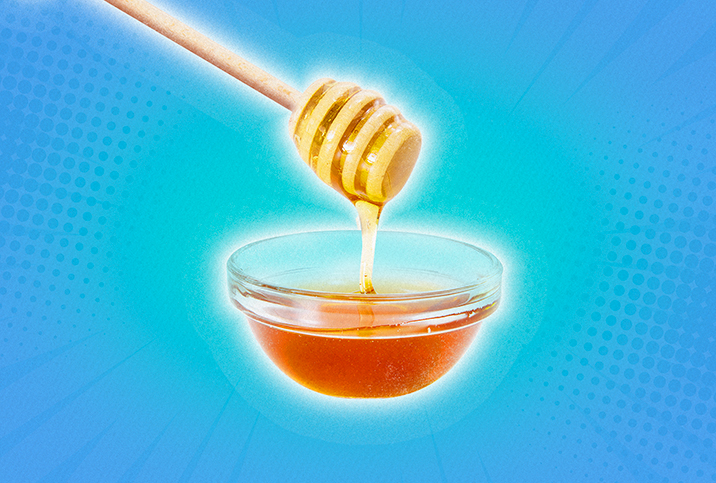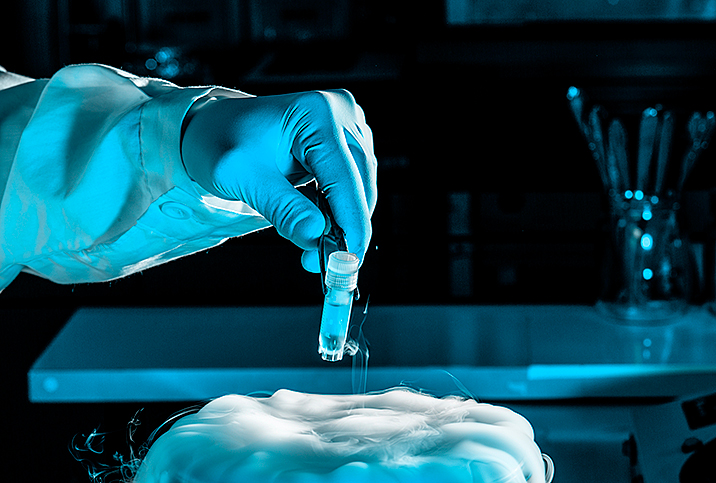Is It Healthy for My Sperm/Semen Consistency to Change?

Can semen consistency be an indicator of a man's overall health? The short answer is maybe. A change in sperm consistency doesn't typically mean you have an underlying health condition, but if your semen looks different than usual, perhaps more thick than normal, almost like mucus, it could cause fertility problems.
On the most basic level, men ejaculate semen—a fluid made of water, plasma and mucus—which contains sperm.
People sometimes confuse semen (or seminal fluid) and sperm, but they have two different functions. Semen carries the sperm cells that attempt to fertilize a woman's egg. Without semen, sperm would have no way to "swim" to the eggs and reproduce. Both semen and sperm need to be healthy for procreative purposes.
"Healthy semen will be cloudy white or gray with a consistency similar to a raw egg," said Paul Thompson, M.D., a urologist and surgeon in Fort Worth, Texas, and the chief medical officer for Launch Medical, a men's sexual health company in Los Angeles.
Sperm, on the other hand, look like wiggly cells and live inside the semen.
When semen is too thick or too thin—anything different than how it typically looks—men might think it's some kind of warning.
But when is it time to be concerned about healthy or unhealthy sperm?
What causes sperm/semen consistency to be thick or clumpy?
Women who experience thick, clumpy vaginal discharge may have an infection. This association may lead men, or their partners, to think thick semen is an indicator of an infection or another bacterial condition. But it typically just means not enough water is in the semen for it to come out perfectly textured.
"In most cases, dehydration would be the cause of abnormally thick semen," Thompson said.
Fortunately for men, that's a quick fix. Drink enough fluids and your semen consistency should have the right amount of water in no time. The solution could be as simple as staying hydrated.
Clumpy sperm or semen is not always a cause for concern. The clumps are actually responsible for holding the sperm in place.
Sometimes there's no rhyme or reason for why your semen is thicker. It could change if your diet and physical activity have changed.
What problems can thick semen consistency create?
Thick semen, which is also called hyperviscosity, is not a problem for people who aren't looking to procreate.
"Thicker semen does not move as easily through bodily fluid and will stick more, making pregnancy more difficult," Thompson explained.
So if you're looking to have children, now is the time to drink more water.
What can cause semen consistency to be too thin and watery?
Semen can become watery for a couple of reasons.
"The more often one ejaculates, the more watery semen will be. Also, people with a low sperm count can have watery semen," Thompson said. "Zinc deficiency can also be a cause of watery semen."
Low sperm count can be due to lifestyle choices, such as smoking, drinking, unhealthy eating and certain medications. It might be difficult for someone to notice they have an insufficient number of sperm if their semen looks normal. Other signs can include low sex drive, pain in the testicle area or hormone abnormality. Zinc deficiency, on the other hand, is typically related to a poor diet.
What problems can a thin semen consistency create?
Releasing too few sperm while ejaculating may affect male fertility even more than semen that's too thick, according to Thompson. With less semen comes less sperm, which means less of a chance to reproduce. This is just one of the reasons men may experience infertility.
Still, it's worth noting that you can still get a partner pregnant if your semen is thin.
How to address both thick and thin semen consistency
Fortunately, semen texture can be naturally addressed through food and water.
"The first thing to do is to make sure you are properly [hydrated]. If you are drinking proper levels of water and still have sperm issues, you should go see a urologist," Thompson said.
Eating healthy foods, such as fruits and vegetables, and foods with zinc—beans, nuts, poultry and red meat—can also help produce healthy semen.
"Low sperm count or zinc deficiency can certainly be an issue," Thompson said. "This is why it is good to see a medical professional if you have concerns."


















